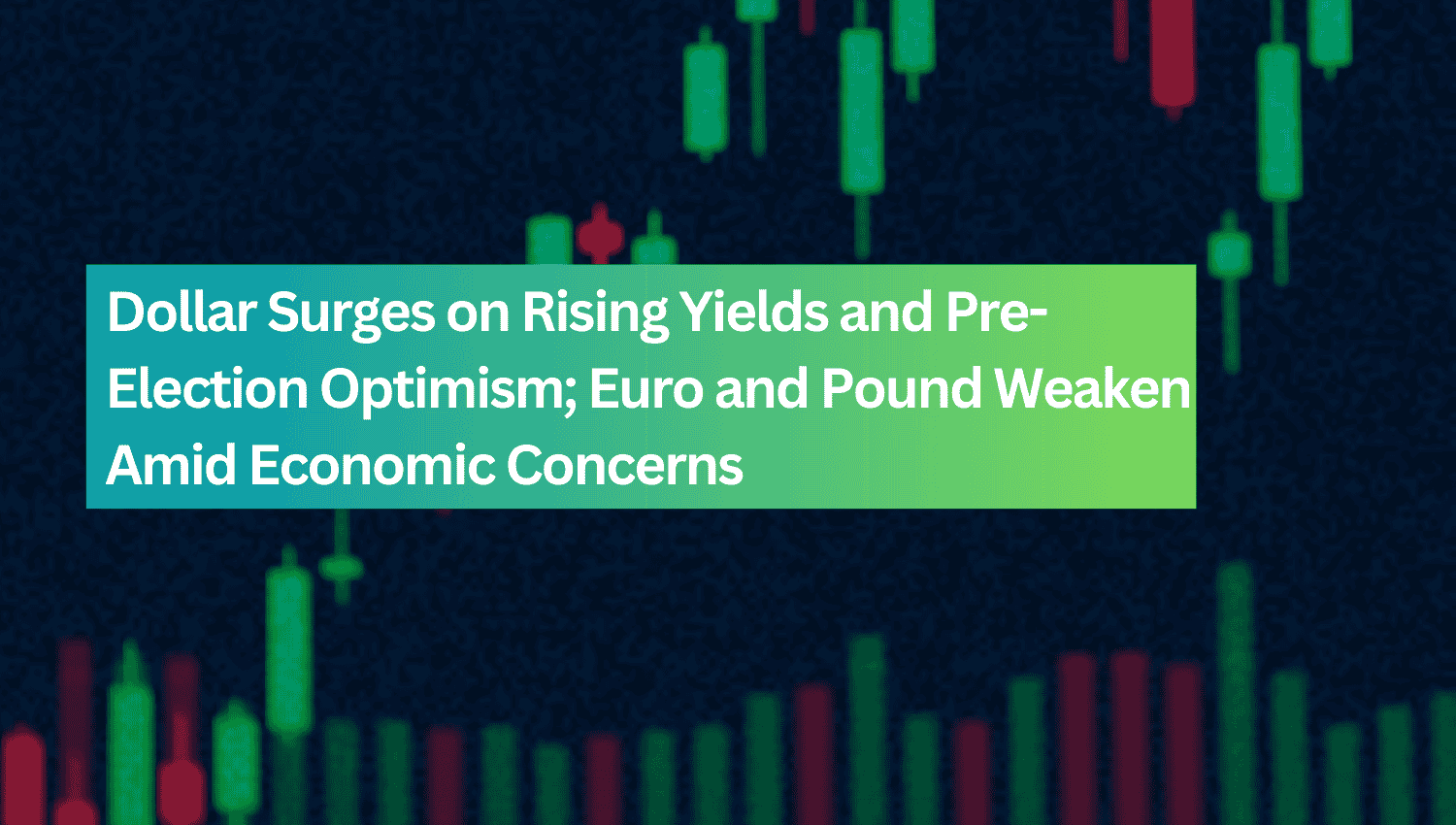Macro Outlook

Elections are not just about choosing leaders; they are pivotal events that can reshape economic policies and influence global financial markets. The intersection of politics and economics becomes particularly evident as election outcomes can sway stock indices, alter currency strengths, and shift commodity prices such as gold and oil. This article explores how the results of elections impact these critical areas of the economy.
Stock Market Dynamics: Anticipation and Reaction
The stock market often serves as a barometer for investor confidence in the wake of an election. Markets thrive on certainty and predictable policy environments. When election results confirm expectations or favor market-friendly candidates, stocks may rally due to anticipated pro-business policies, such as tax incentives, deregulation, or increased government spending on infrastructure.
However, unexpected election outcomes or the rise of candidates with untested economic policies can lead to market volatility. Uncertainty about regulatory changes, fiscal policies, or international trade agreements can cause investors to adopt a risk-averse stance, leading to sell-offs and market dips. The sectors most affected are usually those directly tied to government policy, such as healthcare, energy, and finance.
Currency Fluctuations: Confidence in the Nation's Economic Path
Currencies are sensitive to changes in political leadership and economic policy directions signaled by election results. A stable and decisive election outcome can strengthen a nation's currency as it boosts investor confidence in the country's economic future. Policies promoting economic growth, fiscal responsibility, and low inflation are particularly favorable for currency appreciation.
In contrast, elections that result in political gridlock or signal potential shifts toward inflationary policies can weaken a currency. Investors may anticipate higher government spending without corresponding revenue increases, leading to concerns about national debt and inflation. As a result, they might move capital to currencies perceived as more stable, causing depreciation in the currency of the country experiencing political uncertainty.
Gold: The Timeless Hedge Against Uncertainty
Gold's status as a safe-haven asset becomes especially prominent during election cycles marked by uncertainty. When investors are unsure about future economic policies or foresee potential instability, they often increase their investments in gold. The metal's intrinsic value and historical role as a hedge against inflation and currency devaluation make it an attractive option.
Election results that suggest significant policy shifts, especially those affecting the economy's foundational aspects, can drive gold prices higher. For example, if a newly elected government indicates increased borrowing or unconventional monetary policies, investors may flock to gold to protect their portfolios from potential inflationary pressures.
Oil Prices: Influenced by Policy and Geopolitical Shifts
Oil markets are intricately linked to political events, including election outcomes. Domestically, a new government's energy policies can impact oil production and consumption. An administration prioritizing renewable energy over fossil fuels might introduce regulations that limit oil extraction, affecting supply and potentially increasing prices.
On the international stage, election results can alter geopolitical relationships that influence oil supply chains. Changes in foreign policy, such as the imposition or lifting of sanctions on oil-producing nations, can disrupt global supply and demand balances. For instance, a government adopting a more conciliatory foreign policy might ease tensions, leading to increased oil supply and lower prices, whereas a more aggressive stance could have the opposite effect.
Investor Responses: Strategies Amidst Political Change
In anticipation of and response to election outcomes, investors often reassess their portfolios. Diversification remains a key strategy to manage risk during these periods. Some may increase exposure to sectors likely to benefit from anticipated policy changes, while others might reduce holdings in areas expected to face new regulations or decreased government support.
In currency markets, traders might engage in hedging strategies to protect against unfavorable currency movements resulting from election-induced uncertainty. Similarly, increasing allocations to gold or other precious metals can serve as a buffer against market volatility.
The Global Perspective: Elections Beyond Borders
It's important to note that the impact of elections is not confined within national borders. In an interconnected global economy, significant elections in major economies can have ripple effects worldwide. For example, U.S. presidential elections often influence global markets due to the country's economic prominence. International investors closely monitor these elections to adjust their global investment strategies accordingly.
Conclusion: Navigating the Economic Currents of Elections
Elections are a powerful force with the capacity to reshape economic landscapes. The stock market, currency valuations, and commodity prices like gold and oil are all susceptible to the shifts brought about by new political directions. For investors and businesses, understanding the potential impacts of election outcomes is crucial for strategic planning and risk management.
While elections can introduce volatility and uncertainty, they also present opportunities. Staying informed about political developments and maintaining a flexible investment approach can help navigate the complexities that elections introduce into financial markets and the broader economy.

